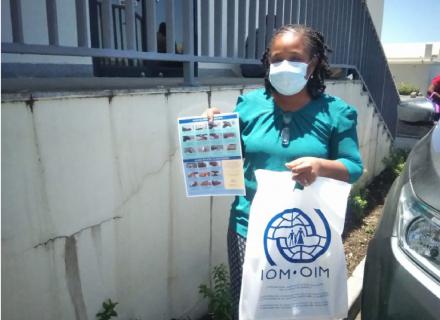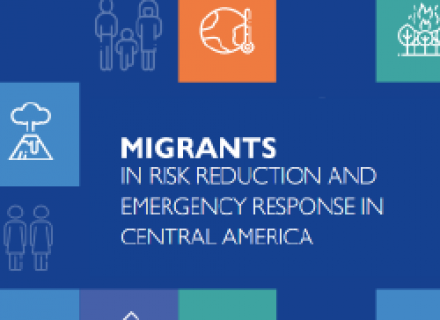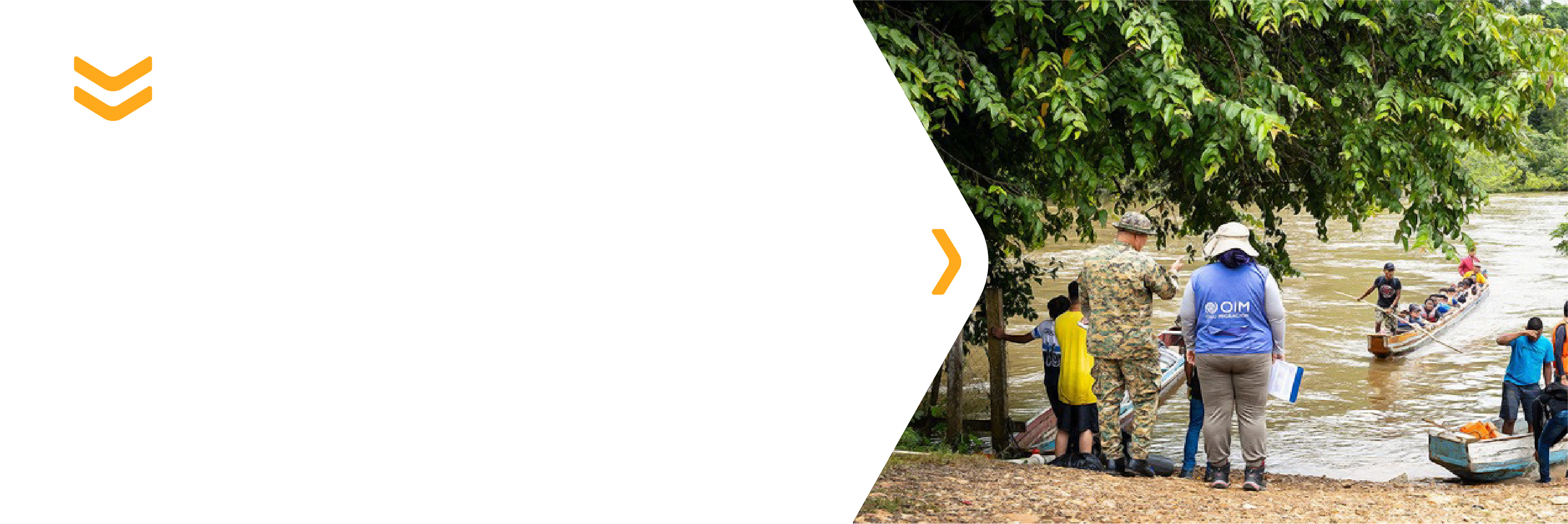The number of international migrants living abroad for work, education, displacement due to violence or climate change is steadily increasing. When disasters occur, migrants may face specific challenges in accessing vital information and assistance.
In line with IOM's Regional Strategy 2020-2024 for Central America, North America and the Caribbean, the Western Hemisphere Program seeks to strengthen the capacity of governments to manage all forms and impacts of mobility in emergencies and crises, and to build the resilience of communities and populations on the move, especially those in situations of vulnerability.
Leveraging tools such as the Guidelines for the Protection of Migrants in Countries Affected by Conflict or Natural Disasters (MICIC) and the Migration Crisis Operational Framework (MCOF), IOM promotes actions and public policies that support the integration of migrants’ needs and perspectives in emergency prevention, preparedness and response systems, in accordance with IOM’s principle to ensure that migration benefits all people.
It is important to note the link between climate change and emergencies. Climate change intensifies the magnitude and frequency of related hazards of hydrological origin, like floods; meteorological, like storms; climatological, like droughts and even biological, like the increase of infections such as zika and dengue. As these natural hazards may cause human mobility in critical situations, IOM addresses both topics considering this link.


International organizations caution against stigmatization of people affected by COVID-19
Under the MICIC initiative and in support of the coordinated and collaborative approach promoted by the Government of Dominica, IOM has been supporting the COVID-19 response through the translation and dissemination of messages to non-national communities including those who speak Creole, French, Spanish, German and Mandarin. In addition, IOM collaborated with the Dominica Red Cross Society to provide hygiene kits to people who may be affected by the disease and have been placed under observation at the Quarantine Unit in Portsmouth.
Read this story, originally published by Dominica News Online.

Including migrants in emergency management
Check out the contents of this online free course you can find on https://www.ecampus.iom.int

Executive Summary: Migrants in risk reduction and emergency response in Central America
The study identifies the extent to which the migrant population is being incorporated into the normative and institutional frameworks of the National Systems of Risk Reduction and Emergency Assistance of the countries of the Central American region.
- « first
- ‹ previous
- 1
- 2
- 3




